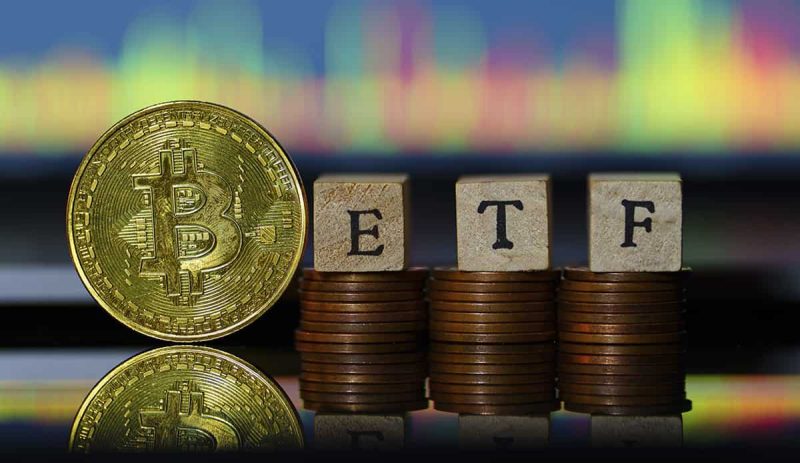March saw an extraordinary surge in trading volumes for U.S.-listed Bitcoin (BTC) exchange-traded funds (ETFs), reaching over $110 billion—tripling the figures observed in the preceding months. This remarkable increase coincides with Bitcoin achieving unprecedented price levels, further highlighting the growing investor interest in cryptocurrency through traditional financial instruments.
Leading the Charge
BlackRock’s IBIT took the forefront, accounting for nearly half of the total trading volume, solidifying its position as a leading player in the Bitcoin ETF market. Bloomberg Intelligence analyst Eric Balchunas likened IBIT’s dominance to that of the GLD, a leading gold ETF, signifying its importance in the Bitcoin ETF landscape. Following BlackRock, Grayscale’s GBTC and Fidelity’s FBTC also captured significant portions of the market, with 20% and 17% shares respectively.
A Changing Market Dynamic
The introduction of U.S. Bitcoin ETFs in January, following their approval by the Securities and Exchange Commission (SEC), marked a pivotal moment for cryptocurrency investment in the traditional financial sector. Since their launch, Bitcoin’s price has soared, peaking at a record $73,000 and altering the market dynamic significantly. This shift has seen a move from fundamental-based trading to a focus on spot ETF performance.
Inflows and Retail Participation
Since March 15, all trading volumes for BlackRock’s IBIT have originated from inflows, indicating a strong and sustained interest in Bitcoin investment. With over $16 billion worth of Bitcoin held as of the latest close, BlackRock’s ETF has become a key conduit for investors, particularly retail, to gain exposure to Bitcoin. The average trading size of $13,000 among retail investors underscores the accessibility and appeal of Bitcoin ETFs to a broad audience.
As the Bitcoin ETF market continues to expand and evolve, the significant trading volumes and record price highs of Bitcoin reflect the cryptocurrency’s growing integration into mainstream finance. The success of products like IBIT, GBTC, and FBTC highlights the increasing appetite among investors for cryptocurrency exposure through regulated, traditional financial mechanisms.
